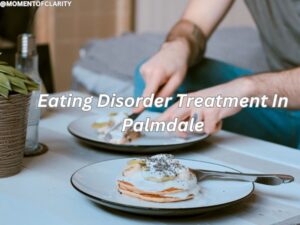
Learn About Eating Disorder Treatment
Discover the importance of eating disorder treatment in Palmdale, California, and how it can help individuals on their self-care journey towards recovery. Learn about the various therapy and counseling options available, the significance of healthy eating habits, and the mental health support provided in this vibrant city.
Eating Disorder Treatment Helpline
Understanding Eating Disorders
Eating disorders are complex mental health conditions that affect individuals of all ages, genders, and backgrounds. They often stem from a combination of genetic, environmental, and psychological factors. People with eating disorders may experience severe disturbances in their eating behaviors, thoughts, and emotions, leading to significant impairments in their physical and mental well-being.
Common types of eating disorders include:
- Anorexia nervosa
- Bulimia nervosa
- Binge eating disorder
- Other specified feeding or eating disorders
The Importance of Eating Disorder Recovery
Eating disorder recovery is a multifaceted process that involves addressing the physical, emotional, and psychological aspects of the condition. It is crucial to seek professional help and engage in evidence-based treatment approaches to achieve lasting recovery.
Eating Disorder Treatment Options in Palmdale
Palmdale, California, offers a range of specialized treatment options for individuals seeking support for their eating disorder recovery. These options include:
- Outpatient Treatment: Outpatient programs provide flexibility, allowing individuals to receive treatment while maintaining their daily routines. They typically involve therapy sessions, counseling, and nutritional guidance.
- Inpatient Treatment: Inpatient programs offer comprehensive care within a residential setting. They provide round-the-clock support, medical supervision, and a structured environment for individuals with severe eating disorders.
- Intensive Outpatient Programs (IOP): IOPs bridge the gap between outpatient and inpatient care. They offer a higher level of support and structure than traditional outpatient programs, with multiple therapy sessions per week.
- Partial Hospitalization Programs (PHP): PHPs provide intensive treatment during the day, allowing individuals to return home in the evenings. They offer a comprehensive range of therapies and support services.
Mental Health Support in Palmdale
Palmdale recognizes the importance of mental health support for individuals struggling with eating disorders. The city offers a variety of resources, including:
- Support Groups: Support groups provide a safe space for individuals to share their experiences, gain insights, and receive support from others who have faced similar challenges.
- Individual Therapy: One-on-one therapy sessions with qualified mental health professionals help individuals explore the underlying causes of their eating disorders and develop coping strategies.
- Family Therapy: Involving family members in the treatment process can be beneficial for both the individual and their loved ones. Family therapy sessions aim to improve communication, understanding, and support.
- Psychiatric Services: Access to psychiatric services ensures individuals receive comprehensive care, including medication management when necessary.
Healthy Eating Habits for Recovery
Developing healthy eating habits is a vital component of eating disorder recovery. Learning to nourish the body with balanced meals and appropriate portion sizes helps restore physical health and supports overall well-being.
Some essential tips for developing healthy eating habits include:
- Consulting a registered dietitian who specializes in eating disorders for personalized meal plans and guidance.
- Practicing mindful eating, focusing on the sensations and enjoyment of each bite.
- Avoiding restrictive diets and embracing a variety of nutrient-dense foods.
- Engaging in regular physical activity that promotes strength, flexibility, and overall wellness.
Therapy and Counseling for Eating Disorder Recovery
Therapy and counseling play a pivotal role in eating disorder recovery. They provide individuals with the tools and support needed to address underlying emotional issues, develop healthy coping mechanisms, and cultivate a positive self-image.
Common therapy approaches for eating disorder recovery include:
- Cognitive-Behavioral Therapy (CBT): CBT helps individuals identify and modify negative thoughts and behaviors associated with their eating disorder. It focuses on developing healthier patterns of thinking and encourages positive changes in behavior.
- Dialectical Behavior Therapy (DBT): DBT combines elements of CBT with mindfulness techniques. It helps individuals regulate their emotions, tolerate distress, and improve interpersonal relationships.
- Acceptance and Commitment Therapy (ACT): ACT focuses on accepting difficult thoughts and feelings rather than trying to eliminate them. It helps individuals align their actions with their values and commit to making positive changes.
- Group Therapy: Group therapy provides individuals with a supportive environment to share their experiences, gain insights from others, and develop healthy coping strategies.
Embarking on a Self-Care Journey
Recovering from an eating disorder is a unique and personal journey. It requires patience, self-compassion, and a commitment to self-care. Palmdale, California, offers a supportive community and comprehensive resources to help individuals on their self-care journey towards lasting recovery.




